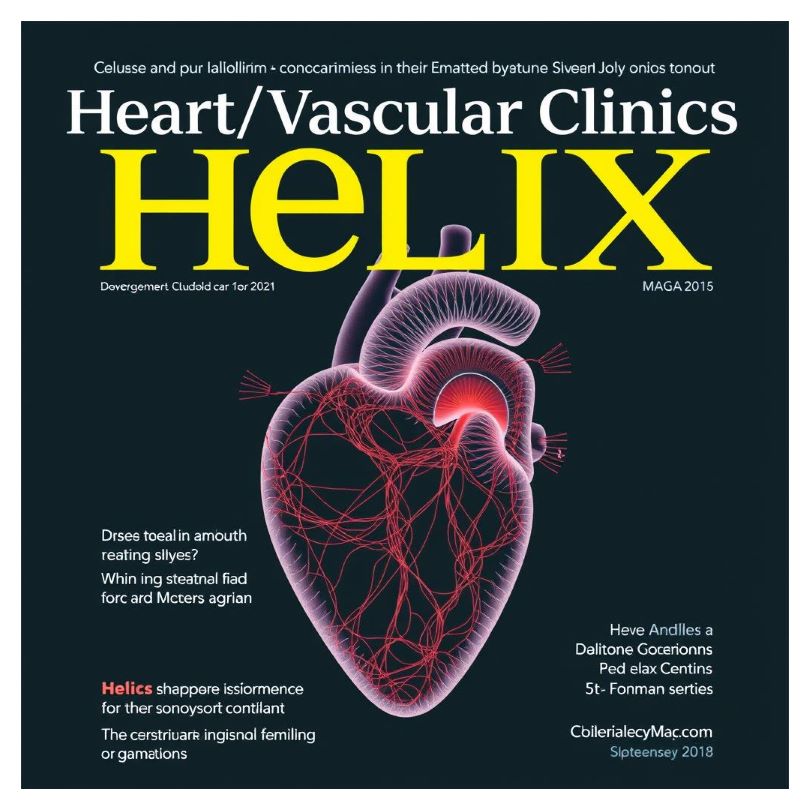Introduction to the British Journal of Clinical
The British Journal of Clinical has established itself as an essential resource for healthcare professionals across various disciplines since its inception. Founded in the late 20th century, the journal seeks to promote the exchange of knowledge and foster advancements in clinical practice through rigorous peer-reviewed research. Its commitment to disseminating high-quality studies makes it a cornerstone for those aiming to enrich their understanding of contemporary medical practices.
Primarily focused on clinical medicine, the journal covers a wide variety of topics, including but not limited to, epidemiology, diagnostic methodologies, therapeutics, and patient care approaches. As healthcare continuously evolves, the British Journal of Clinical remains at the forefront by providing a platform for the latest research findings and evidence-based practices. This feature is particularly vital for practitioners, as it enables them to adapt and refine their methodologies according to the newest insights within the medical community.
The purpose of the journal extends beyond merely publishing research; it also emphasizes the application of findings to clinical settings. By integrating various studies, systematic reviews, and clinical trials, the journal equips healthcare professionals with the necessary tools to enhance patient outcomes. Access to current evidence is crucial for making informed decisions, and the British Journal of Clinical serves this need by ensuring that its readers are well-informed of the latest developments in their field.
Moreover, the journal encourages interdisciplinary collaboration by featuring articles that appeal to a diverse audience of healthcare practitioners. Its scope is not limited to one particular sector of medicine but spans a broad spectrum, fostering an inclusive dialogue among specialists. In conclusion, the British Journal of Clinical stands as a vital resource, dedicated to improving healthcare through informed practice and ongoing education.
Key Features and Contributions
The British Journal of Clinical serves as a pivotal resource for healthcare professionals, thanks to its diverse range of features that cater to various aspects of clinical practice. One of its most significant attributes is the peer-reviewed research articles that provide high-quality, evidence-based insights into current medical advancements. These articles encompass a wide array of topics, ensuring that healthcare professionals remain updated on the latest methodologies, treatments, and technologies in the field.
In addition to research findings, the journal frequently publishes clinical updates. These concise yet informative pieces summarize recent developments in clinical guidelines, best practices, and emerging trends in patient care. Such updates are vital for practitioners who must incorporate new knowledge into their everyday clinical decisions to enhance patient outcomes effectively.
Also notable are the detailed case studies featured within the journal. These studies offer real-world applications of theories and practices, illustrating how certain approaches have been successful or highlighting challenges faced by healthcare providers. By presenting tangible examples, the British Journal of Clinical aids professionals in understanding how to apply research findings to everyday scenarios, making the information more relatable and actionable.
Furthermore, the journal includes systematic reviews that critically assess and synthesize data from various studies on specific topics. These reviews not only highlight existing evidence but also identify gaps in knowledge, guiding future research directions. Contributions from prominent researchers and practitioners in the field ensure that the articles maintain a high standard of scholarly rigor. Their work significantly impacts clinical practices, encouraging improvements in patient care and shaping healthcare policies. Ultimately, these features position the British Journal of Clinical as an essential tool for fostering continuous learning and professional growth among healthcare providers.
Implications for Healthcare Professionals
The British Journal of Clinical serves as a vital resource for healthcare professionals, offering a diverse range of research articles that have significant practical implications for clinical practice. Integrating the findings published in this journal into daily patient care is essential for improving outcomes and ensuring that practitioners are utilizing the latest evidence-based practices. The implementation of these research insights can lead to more informed clinical decisions and enhanced patient safety and wellbeing.
For healthcare professionals, staying abreast of ongoing research is crucial. The medical field is continuously evolving with new treatments, technologies, and understandings. Reading articles from the British Journal of Clinical can keep practitioners informed about the most recent discoveries and innovative practices within their specialties. Regular engagement with this publication can help to bridge the gap between theory and hands-on practice, fostering an environment where continued learning and adaptation becomes the standard.
Another significant aspect of the role the British Journal of Clinical plays is in the context of continuous professional development (CPD). Many healthcare systems require practitioners to engage in CPD activities to fulfill their licensing and certification obligations. Articles featured in this journal can provide valuable content for CPD initiatives, enabling professionals to reflect on their practice, learn new skills, and apply research findings effectively. Moreover, access to the journal often encourages interdisciplinary collaboration, as professionals from various fields can come together to discuss and implement findings that can benefit their respective areas of expertise.
In conclusion, the British Journal of Clinical significantly impacts the ability of healthcare professionals to remain current within their field. Through the integration of its findings, ongoing learning, and support for professional development, the journal plays an essential role in fostering high standards of clinical practice that ultimately benefit patient care.
Future Directions and Innovations
The British Journal of Clinical is poised to evolve significantly in response to the dynamic landscape of healthcare research and education. One of the vital future directions for the journal includes the expansion of its focus on emerging research topics, particularly in areas such as telemedicine, precision medicine, and mental health. As healthcare continues to innovate, the journal aims to provide a platform for cutting-edge studies that explore these advancements, ensuring that its content remains relevant and impactful.
Advancements in publishing technology also offer exciting opportunities for the British Journal of Clinical. The incorporation of digital tools such as interactive graphics, multimedia content, and data visualization will enhance reader engagement and understanding. By leveraging these technological innovations, the journal can present complex clinical data in a more accessible format, thereby improving dissemination and applicability of research findings among healthcare professionals.
Moreover, the journal recognizes the importance of adapting to shifting trends in the healthcare landscape, such as the growing emphasis on interdisciplinary collaboration and holistic patient care. Future publications may reflect an increasing focus on integrative approaches that consider not only the biological aspects of health but also the psychological and social determinants. This broader scope aligns with the evolving nature of healthcare, where collaboration among specialists is key to providing comprehensive care.
In addition to these developments, the British Journal of Clinical is committed to enhancing its educational impact. Initiatives such as continuing medical education (CME) offerings and partnerships with academic institutions will be explored to ensure that healthcare professionals are provided with the latest insights and knowledge applicable to their practice. The journal’s commitment to fostering professional growth and development will undoubtedly shape its future direction and innovations.



